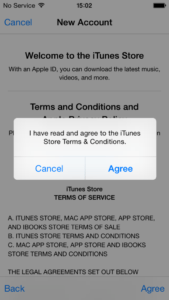
Terms of Service documents published in the footer of a website or “fine print” of an application have legal significance but in some cases, may fail to act as a contract, as have somce End-User-License-Argeements (EULAs) and other website disclaimers (See In re Zappos.com Inc., Customer Data Security Breach Litigation (2012). In other cases, poorly drafted clauses in Terms of Services, Privacy Policies, or EULAs have been used as the basis to deem the entire documents, with all warranties and disclaimers, legally void. (See Harris v. Blockbuster, Inc., 622 F.Supp.2d 396 (N.D. Tex. Apr. 15, 2009) (link to opinion -pdf).
Entrepreneurs and technology startups seeking to reduce legal risk when launching a new mobile application or website are faced with challenges as to how to effectively and practically legally protect the company and reduce risk through the Terms of Service (or Terms and Conditions), Privacy Policy, or End-User-License-Argeement (EULAs), collectively as legal contracts between the website or mobile applications owners and each individual visitor, customer, and/or user. Of course not all visitors may be users or, in the case of Software-as-a-service (SAAS) or Platform-as-a-service (PAS) for example, paid users.
Distinguishing visitors and the relationships each has with website and mobile application publishers are among the chief considerations when drafting effective Terms of Service (or Terms and Conditions), Privacy Policy, or End-User-License-Argeement (EULA) documents. In the case of the mobile application and social network platform for example, other legal considerations in drafting website disclosures include the type of intellectual property licenses involving copyrights and other proprietary materials are exchanged between users who use the software and other content of the website or application, and the publishers who in some cases publish the user-generated-content uploaded by users.
These and other legal considerations require consultation by an intellectual property and internet technology attorney who is familiar with the needs and limitations of technology startups at early stages, and is experienced in advising tech startups on addressing their Terms of Service (or Terms and Conditions), Privacy Policy, or End-User-License-Argeement (EULA) requirements based on that digital product’s specific user experience, the company’s broader objectives and positioning, and controlling law.

The content above is a discussion of legal issues and general information; it does not constitute legal advice and should not be used as such without seeking professional legal counsel. Reading the content above does not create an attorney-client relationship. All trademarks are the property of L.A. Tech & Media Law Firm or their respective owners. Copyright 2017. All rights reserved.


